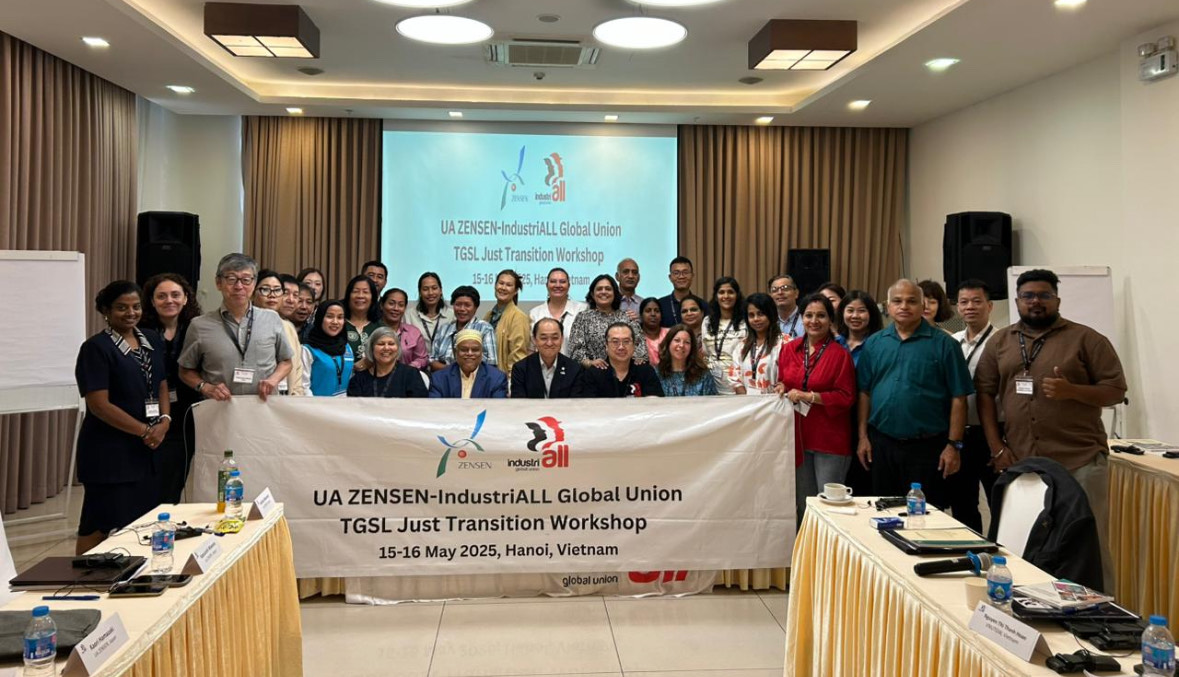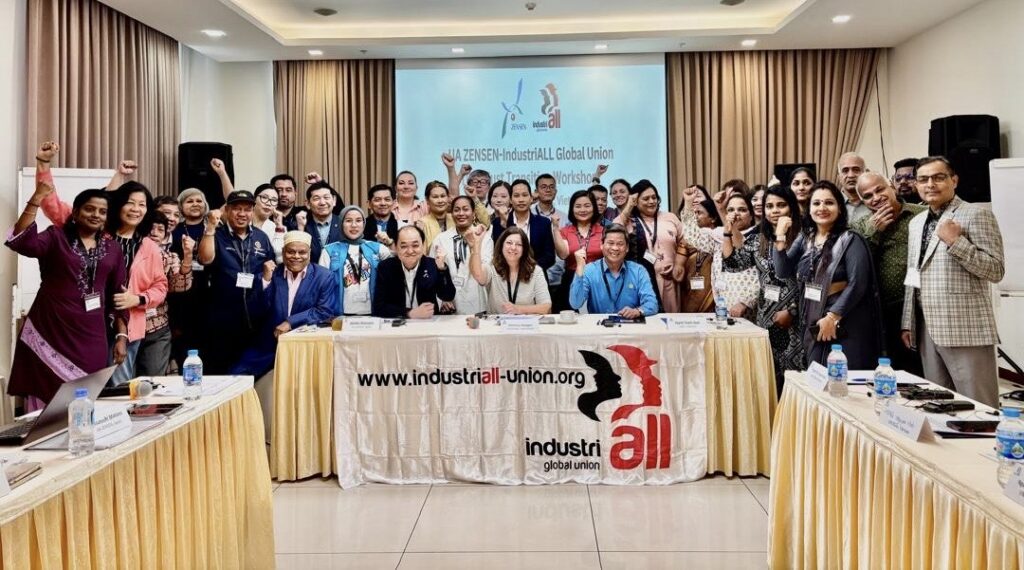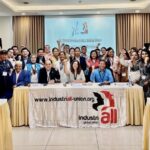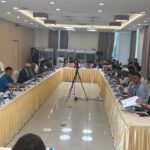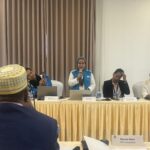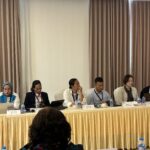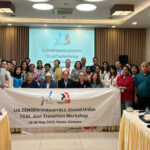21 May, 2025On 15-16 May, affiliates from the Asia-Pacific textile, garment, shoe and leather (TGSL) sector met in Hanoi, Vietnam, for a regional workshop on Just Transition. Organized by IndustriALL Global Union and Japanese affiliate UA Zensen, and hosted by the Vietnam General Confederation of Labour (VGCL), the event brought together more than 40 trade leaders to exchange experiences and strengthen solidarity within the sector.
In his opening remarks, VGCL vice president Huynh Thanh Xuan emphasized the need for trade unions to support workers through the green transition.
The workshop addressed the challenges and opportunities for protecting workers amid the shift to more sustainable industrial practices in the sector. IndustriALL sector director Christina Hajagos-Clausen, highlighted the importance of a comprehensive approach:
“Just Transition is the path to a sustainable future, a prerequisite for progress. This must include a sustainable industrial policy, with strong social protections and creative labour adjustment programmes.”
Ingrid Christensen, ILO country director in Vietnam, delivered a technical presentation on Just Transition, outlining the ILO’s commitment to promoting decent work and advancing social justice.
Participants reviewed the outcomes of the ILO experts meeting on decent work opportunities and challenges in recycling, held in Geneva from 5 to 9 May. Christina Hajagos-Clausen shared draft policy guidelines on TGSL sector engagement in recycling. Jenny Kruschel from Australian union CFMEU contributed insights as a participant in the ILO meeting. The guideline outlines policy measures and actions that governments, employers, workers and other stakeholders can take to promote decent work and address related challenges in recycling and associated sectors.
Further discussions explored the Paris Agreement’s relevance to the TGSL sector, with UA Zensen sharing examples from Japan’s circular economy and recycling practices.
Presentations from Bangladesh focused on developments such as the employment injury scheme and the International Accord’s impact on creating a safer and fairer industry. The Philippines highlighted the role of a tripartite sectoral structure in facilitating social dialogue and worker-centred climate policies.
Kan Matsuzaki, IndustriALL assistant general secretary, addressed the implications of artificial intelligence (AI) for the sector.
“The TGSL sector is one of the most impacted by AI. For example, in Bangladesh, about 60 per cent of apparel workers face the risk of losing their jobs due to automation, including AI. If guided by solidarity and strong worker participation, AI can indeed become a catalyst for an inclusive, fair, and sustainable industrial economy—one that respects human dignity and leaves no worker behind.”
As part of the effort to ensure no one is left behind in the green transition, IndustriALL affiliates are drafting a Just Transition manifesto. The manifesto will outline key demands and will be accompanied by a strategic action plan.
Participants agreed on the importance of awareness-raising at the shop steward level and committed to building a sustainable and just industrial policy, factory by factory. These efforts will continue in the lead-up to IndustriALL’s 4th Congress in Sydney in November, under the theme Organizing for a Just Future.
